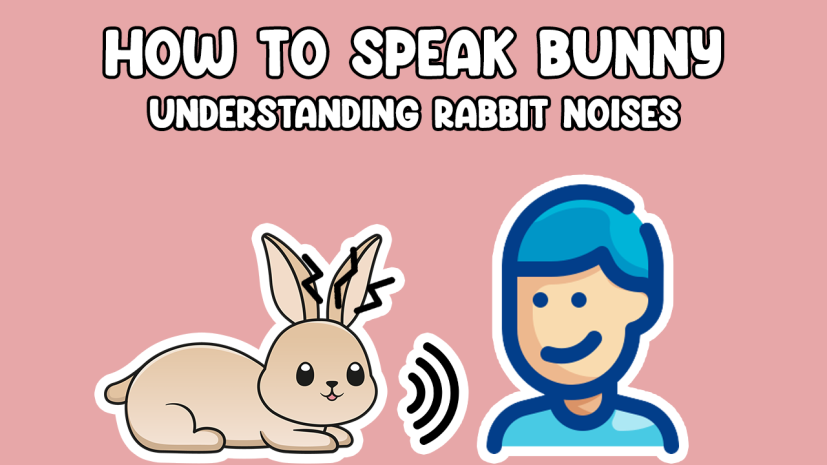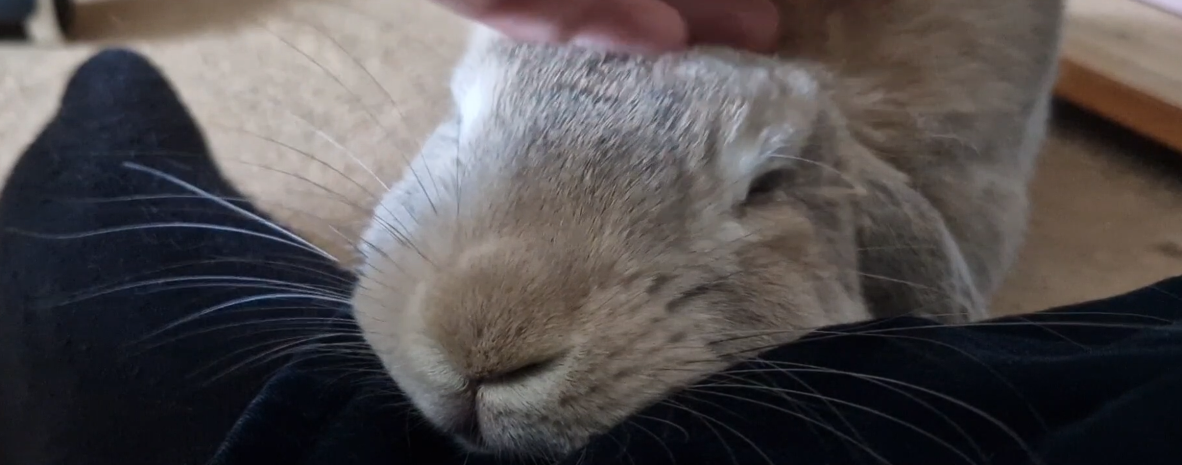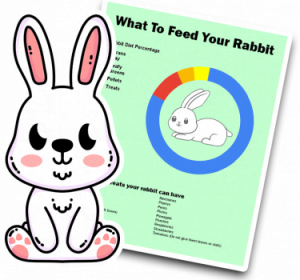
Other pets make it incredibly easy to understand what they want, whether it’s food, attention, or a sense of urgency. Rabbits are typically a much quieter animal, even when closely bonded with yourself. However, much like Cats and Dogs, there are signs and patterns we can follow to understand your rabbit.
In certain circumstances, Rabbits can make extremely loud and quite scary noises. This typically occurs when they are scared, in life-threatening pain, or distress. In less severe cases, rabbits will express themselves via specific behavior.
In this article, we will discuss verbal communication from rabbits and what they typically mean, some will change depending on the context, but we will do our best to explain this as simply as possible.

Rabbits may honk for various reasons, but excitement and a demand for attention are the most common. When a rabbit is not spayed or neutered, honking may be accompanied by circling behaviors, which are part of their mating dance. However, honking can also indicate general excitement, such as when they see a treat or experience a change in their environment, like introducing new toys.
When your rabbit honks, it’s important to acknowledge their communication and respond appropriately. Here’s how you can engage with your honking rabbit:
Rabbit growling or grunting is a sign of anger or feeling threatened. It is their way of expressing the need to be left alone or asserting their territorial boundaries. When a rabbit growls or grunts, it’s best to respect their space and avoid further interaction.
However, suppose territorial anger situations become a regular occurrence. In that case, sitting near your rabbit calmly and quietly can be helpful so they can gradually become more familiar with your presence. This can help build trust over time.
We have found that our rabbit Link gets angry when we play with his stacking cups for too long or if he’s gotten them into a position he likes, every bunny is different, so it’s essential to learn when to distance yourself.
Here are some guidelines for dealing with rabbit grunting:
Remember always to prioritize the safety and well-being of yourself and your rabbit when dealing with growling or grunting behaviors.

This is an area that people often confuse with Teeth Purring, but they are not the same. Teeth grinding is a sign that your rabbit is in pain or distress. This requires an immediate visit to the veterinarian.
Teeth Grinding is typically a lot louder and will be paired with your rabbit’s mouth movements being much more forceful, whereas teeth purring is often small bursts of small circular mouth movements.
Teeth purring is a positive expression of contentment and relaxation, while teeth grinding may indicate an underlying issue that requires attention and veterinary care.
This can be an underlying sign of pain associated with GI Stasis, Dental issues or even injury that isn’t visible to the human eye.
Teeth purring is a gentle grinding motion produced by a rabbit’s teeth. It is often accompanied by a rhythmic sound that resembles purring. Teeth purring is typically associated with contentment, relaxation, and overall satisfaction.
When a rabbit’s teeth purring, it indicates that they are in a state of comfort and enjoyment. It commonly occurs when they are being petted, receiving gentle attention, or engaging in activities that please them. Teeth purring is a positive vocalization that reflects their happiness and well-being.
We have found this occurs mainly when we are giving our rabbit cheek & ear scratches or head pets.
Please note this audio is incredibly upsetting. This is audio we found elsewhere and are keeping here for educational purposes, if your rabbit makes this noise, stop what you’re doing immediately and take them to a vet.
Rabbit squeals or screams are loud, piercing, and high-pitched vocalizations different from their usual sounds. They are typically reserved for moments of severe distress or pain and can be quite startling to hear.
There are two main causes for a rabbit to squeal and/or scream:
Responding promptly and appropriately is essential if you hear your rabbit squealing or screaming. There are three steps you should take when this happens:
This is quite a hard noise to pinpoint as it can sound quite similar to honking and often happens in tandem. However, it’s closer to the sound of a bee flying around.
Clucking sounds in rabbits are unique vocalizations that resemble a chicken clucking. These sounds are often associated with feelings of contentment and relaxation. Some rabbits may produce clucking sounds when feeling exceptionally comfortable, enjoying a pleasant interaction, or experiencing a sense of security in their environment.
Clucking is usually a positive sound and signifies a state of well-being in rabbits. It can often be heard when rabbits are being gently stroked or during moments of quiet relaxation.
If your rabbit clucks occasionally, there is typically no cause for concern. However, if clucking is accompanied by other unusual behaviors or signs of distress, it’s advisable to consult with a veterinarian for further evaluation.
The sound of a rabbit wheezing is similar to the sound humans make when we have trouble breathing. It’s often characterized by a high-pitched, whistling, or raspy sound, which can change in pace depending on how excitable or calm your rabbit is.
This sound is usually accompanied by labored breathing, and your rabbit may be seen struggling to get air in and out.
In severe cases, the rabbit might open its mouth to breathe, which is unusual because rabbits typically breathe through their noses. This may be a sign of sniffles which can result in a change in behavior, decreased appetite, disinterest in activities they usually enjoy, or lethargy.
If your rabbit is wheezing, you must get them to a vet immediately. Rabbits are prey animals and often hide signs of illness until they’re very sick, so any apparent signs of distress, like wheezing, should be taken seriously.
If your rabbit is making noises similar to a pig, it might be exhibiting a behavior known as “purring” or “tooth purring.” This involves gently grinding the teeth when the rabbit is relaxed and content, often when being petted or stroked.
Rabbit coughing is usually related to snuffles, a bacterial infection caused by Pasteurella multocida, Bordatella, or Pseudomonas. If your rabbit looks like it’s trying to breathe through its mouth, that is a sign to seek help from a veterinarian urgently.

By entering your email address you agree to receive emails from Cottontailclub. We'll respect your privacy and you can unsubscribe at any time.